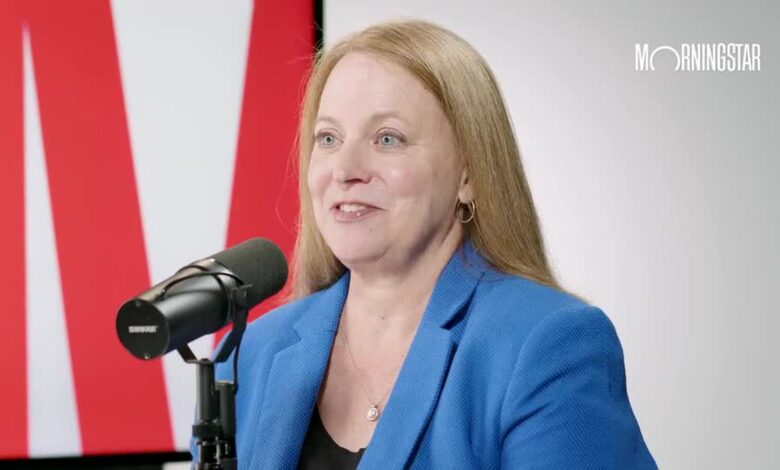Should You Hold Cash Investments After the Fed Cuts Interest Rates?

There’s a tug-of-war between investing in cash and long duration bonds in today’s interest environment.
Why it matters: The longer-end of the yield curve may look more appealing since anticipation is building about interest rate cuts. Morningstar’s economics team and market watchers are predicting the Federal Reserve will lower rates more than once in the final months of 2025. What may matter more is the time horizon for your financial goals.
Morningstar Inc Portfolio Strategist Amy Arnott has examined why for some investors, sticking with cash is a less risky and better approach.
9 Questions on Cash Investments
- Let’s start with an explainer. What is cash?
- Interest rates are a popular topic now. The Federal Reserve is expected to announce its rate decision this afternoon. Morningstar’s economics team and market watchers are predicting lower rates. Should bond investors swap short-term Treasury bills for 20- to 30-year Treasury bonds?
- Talk about why it could be a mistake for bond investors to assume the Fed will cut rates that match predictions.
- In your article, Why Cash Is Still King for Short-Term Goals, you discussed a couple of reasons why cash yields still look good. Can you explain?
- What are some of the trade-offs when holding cash?
- Where are best places to invest cash if you need the money sometime within the next 12 months?
- Are there any places where people might not want to keep their cash holdings?
- And what about goals with a time horizon that’s a little bit longer—like two or three years?
- What’s the takeaway for investors weighing whether to take on the risk of long-duration bonds?
Key Quote on the Risks of Long-Duration Bonds
If you’re a person who’s expecting rate cuts to continue, you might be tempted to buy longer-duration bonds because you could get some price gains. As rates come down, those bonds become more valuable. But on the other hand, you would also be taking a lot more risk.
So especially if you’re on the very far end of the yield curve, if you have a situation where rates are going in the opposite direction, you can have pretty big losses.
Amy Arnott, Portfolio Strategist, Morningstar Inc
The Takeaway: Investors should stick to their goals and time horizons despite the Fed, says Arnott. Keep your own financial needs at the forefront when deciding if you should keep your assets in cash.
More From Morningstar on Cash Investing in 2025
The risk of long-term bonds may not be worth the reward, argues Arnott. Investors with short time horizons should actually hold cash in the short-end of the yield curve. Here’s why Arnott thinks these investments are safer in our current market environment for short-term goals.
In 2025, cash is making a name for itself as a diversifier, explains Christine Benz. Cash has had a significantly lower correlation with US stocks, namely lower than high-quality bonds, which held the throne for decades. That’s according to Morningstar’s 2025 Diversification Landscape report.
Talk of interest rates has been omnipresent in the media, but that doesn’t mean investors should overstate the impact of the Fed, says Dan Lefkovitz. Lefkovitz lists seven reasons why investors need to stop freaking out over the Fed.
Markets Brief moment: Oracle’s ORCL transformation is serving as a reminder that big opportunities to invest in artificial intelligence still exist. The database provider’s expansion into being a cloud provider recently sparked a 42% jump in its stock price. That caught the attention of Dan Kemp, chief research and investment officer at Morningstar Investment Management Europe. The author of the Markets Brief says one of the big takeaways is that stocks like Oracle are making good use of AI, and investors should look beyond the popular names.
In next week’s Markets Brief, Dan will dive into how the Federal Reserve’s quarter-point rate cut feeds into changed opportunities and risks in the broader markets for the long term.
Read Dan’s perspective on the biggest headlines in the Markets Brief on Morningstar.com on Mondays.
Jess Bebel, an associate multimedia editor at Morningstar, contributed to this article.
The author or authors do not own shares in any securities mentioned in this article.
Find out about Morningstar’s editorial policies.
Morningstar Investment Management LLC is a Registered Investment Advisor and subsidiary of Morningstar, Inc. The Morningstar name and logo are registered marks of Morningstar, Inc. Opinions expressed are as of the date indicated; such opinions are subject to change without notice. Morningstar Investment Management and its affiliates shall not be responsible for any trading decisions, damages, or other losses resulting from, or related to, the information, data, analyses or opinions or their use. This commentary is for informational purposes only. The information data, analyses, and opinions presented herein do not constitute investment advice, are provided solely for informational purposes and therefore are not an offer to buy or sell a security. Before making any investment decision, please consider consulting a financial or tax professional regarding your unique situation.
Credit: Source link






